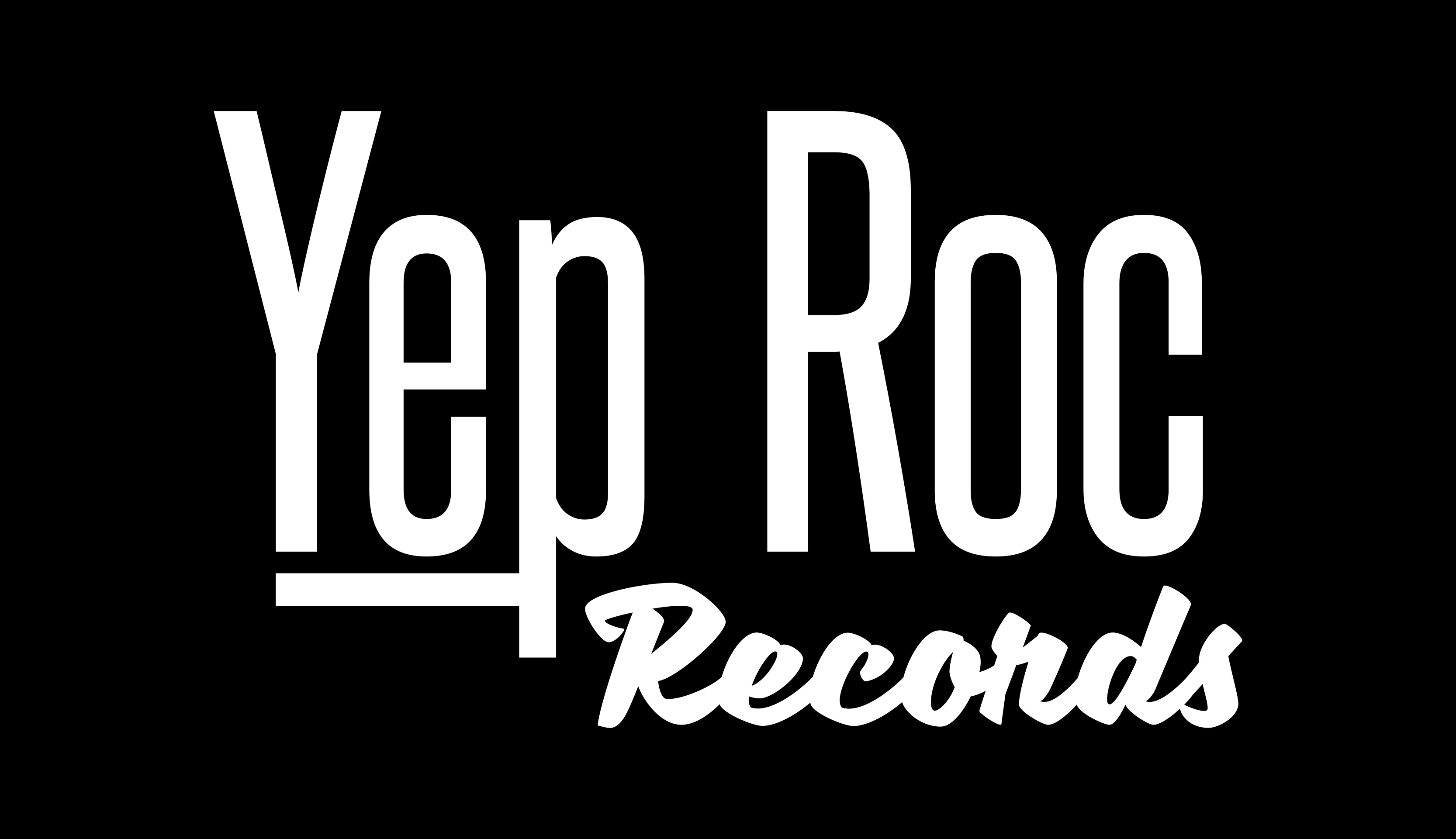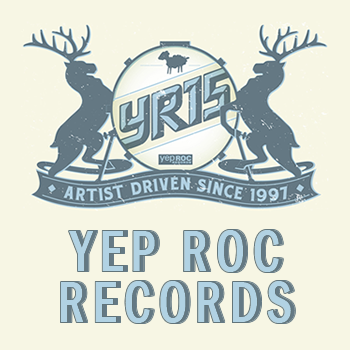The easiest way to describe a record label might be to define the kind of music it releases. In an era of infinitely splintering genres and border retrenching, that often seems simple enough: This label only reissues Northern Soul that never made it beyond an initial private press, while that label only sells music that can trace its cleanest roots to the folk traditions of the Appalachian mountains. One imprint only rolls with the heaviest of metal, while another tries to cash in on the most powerful of all the pop. You get the point.
But trying to circumscribe the 300 or so albums, singles, videos and box sets that Yep Rec Records has released during the last 15 years is an endlessly frustrating and thankfully informative lesson in slippery definitions. Yes, the common assumptions about Yep Roc hold. They proudly scoop up legacy artists like Nick Lowe, Robyn Hitchcock, John Doe and Paul Weller, not only confirming their pasts but furthering their futures by releasing some of the most compelling music of their careers on Yep Roc. And indeed, from Dave Alvin and Caitlin Cary to The Sadies and Chatham County Line, Yep Roc has often stuck to a roots-music mien appropriate for a label that’s always called North Carolina’s Piedmont home.
Those generalizations, however, are only half of the story, if that. Taking its name from a song written by playful jazz pioneer and jivester Slim Gaillard, Yep Roc has nursed baby bands into some of its most noteworthy success stories and broken way beyond the boundaries of bluegrass, alt-country or whatever bucolic potion you pick. They’ve pushed Chatham County Line from locals mostly playing bluegrass into a headlining act with a proud pan-Americana approach and recently given newcomers like Cheyenne Marie Mize, Peggy Sue and Jukebox the Ghost a chance to broadcast their peerless hooks to the rest of the world. From Sloan and Fountains of Wayne to Mayflies USA and Bell X1, letting loose such pop melodies to the world is something Yep Roc has done a long time, anyway.
“If I’ve got on my Yep Roc T-shirt,” explains label co-founder Tor Hansen, “I’m not really a part of one music scene. I accept that, and I think it’s actually pretty great. I like the idea that Yep Roc has the idea of an all-inclusive approach.”
Hansen started the label in 1997, two years after moving to North Carolina to help manage a chain of record stores in the South, when things like that still existed. In and around the longtime musical hotbed of Chapel Hill, he encountered a slew of bands making good music but not really knowing how to get it out. Back in Boston, he’d worked at Rounder Records with his childhood friend and former bandmate Glenn Dicker. Tor had worked in sales, and Glenn had worked in promotions. They made the logical decision to try and do both together with their own label and their own distribution wing, Redeye.
It started ordinarily, with a few local compilations featuring some recognizable names (Ryan Adams archivists will note Whiskeytown’s “Take Your Guns to Town” on YEP-2001, the inaugural 1997 release) and some names they hoped people would soon spot. There were no strictures or typecasts, no attempts to use the best bands in the vicinity to define a North Carolina sound or a Yep Roc brand. It was all simply stuff that Hansen and Dicker liked.
To wit, after about its first 100 releases, Yep Roc entered one of its most indicatively taste-driven spurts, releasing, in succession, records by Hüsker Dü’s Bob Mould, Springsteen proselytes Marah, drifting folk act Dolorean and rock ‘n’ roll madmen The Legendary Shack*Shakers. Jump down a few more catalogue numbers, and Yep Roc followed the debut of terse, tense post-punk act Cities with discs by alt-country progenitor Dave Alvin and Los Straitjackets, the masked surf rock stars whose sales a year earlier helped convince Hansen and Dicker that their personal and open approach to curating releases was a sustainable move.
The success of Los Straitjackets and the experience of working with Dicker on the Rounder-distributed Upstart helped provide the convincer to Nick Lowe to join Yep Roc. And after recording an album with a band named Wilco, Young Fresh Fellow Scott McCaughey simply knew he wanted to be on the same label as Lowe, so he sent it over to Yep Roc.
“I’m a huge Nick fan, and I figured any label that was into Nick had to be cool,” McCaughey says. The label’s partnership with McCaughey has lasted nearly a decade now, something he attributes to the openness of Dicker and Hansen to put their brand and money behind something they simply enjoy. “I’m surprised by the way they embraced my other bands, especially The Baseball Project. I’m also grateful that they support the Young Fresh Fellows occasional releases, with no hope of monetary gain.”
Both Dicker and Hansen like to joke that such a release-what-you-love approach might not always make the most financial sense. After all, they’ve very rarely pursued indie rock’s latest buzzing commodity or chased a trend washing through the industry. The label has never been about its own brand or the micro-celebrity of its owners; rather, Yep Roc has always followed the path of the artists it claims, meaning that its image has been forever fluid, an open matrix for music that’s worth hearing. Sure, that might mean that they’re not able to return to the same customer core for every album. After 15 years, though, this is a label that’s still very proud of the oeuvre they’ve built.
“It’s a little challenging when we do a singer-songwriter, some blues guy, some garage-rock guy, some indie thing. It’s a little bit all over the place. It presents fun challenges, but the marketing of this brand is difficult,” explains Dicker. “It’s about the artist first- in fact, we’re driven by the artists. We’re going to market this artist and connect the dots for this artist; the brand is just going follow behind that in the pop-up camper. That’s always the way we’ve looked at it, never the other way around.”
There’s perhaps no better case study for the benefits of this idea than Chatham County Line, an act that Yep Roc originally brought into its fold on the bluegrass-oriented, now-defunct imprint, Bonfire. Whether recording with Yep Roc artist Chris Stamey or collaborating with Yep Roc alumna Tift Merritt, Chatham County Line has served as a continued manifestation of Yep Roc’s locally based roots and future. They’ve simultaneously grown beyond those roots, though, not only in renown (they’ve gone [platinum in Norway multiple times) but also in sound, using Yep Roc as a brand that enables them to stretch well past one typecast. A decade after their first release with the Yep Roc family, they’ve grown well beyond the bounds of some bluegrass imprint.
“We didn’t want to take the easy road to a bluegrass label and get pigeonholed,” explains Chatham County Line’s John Teer. “We believed that Yep Roc was a label that could take us in that direction that would put us in front of a whole different audience that wouldn’t normally see a bluegrass show. Their fluidity helped us tremendously.”
So that’s it? All these words to say that Yep Roc is a label without a clear label of its own? Mostly, but that’s not entirely true. In our world of market-driven madness, where even 140 characters can be felt around the world, Yep Roc seems increasingly like a rare sanctuary for the feeling of what it means to covet music and to cherish the chance to share it, no matter what it means for the bottom line or the market dossier. Dicker and Hansen have built a healthy small business fed largely by the restlessness of a dreamer’s goals and an enthusiast’s ambition. That’s your summary
“Yep Roc is staffed by a small number of people,” Chris Collingwood, of major-label escapees Fountains of Wayne, says about his band’s new home with Yep Roc. “I met all the employees in one afternoon, and it seemed pretty obvious they were all music fans, excited to be working there. I’d like to think the association implies a certain intelligence and integrity that aren’t common in this business.”
Tags: YR15
